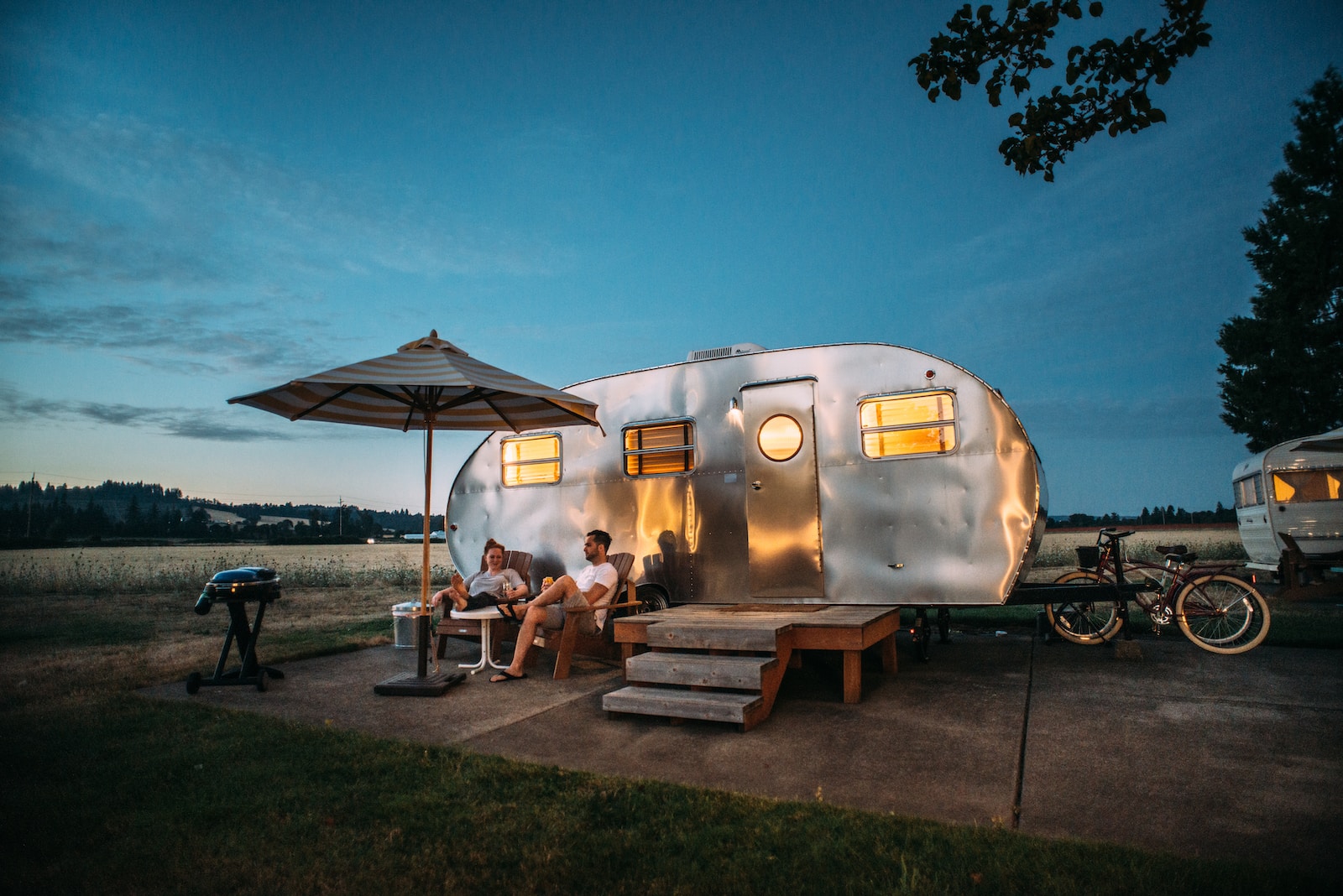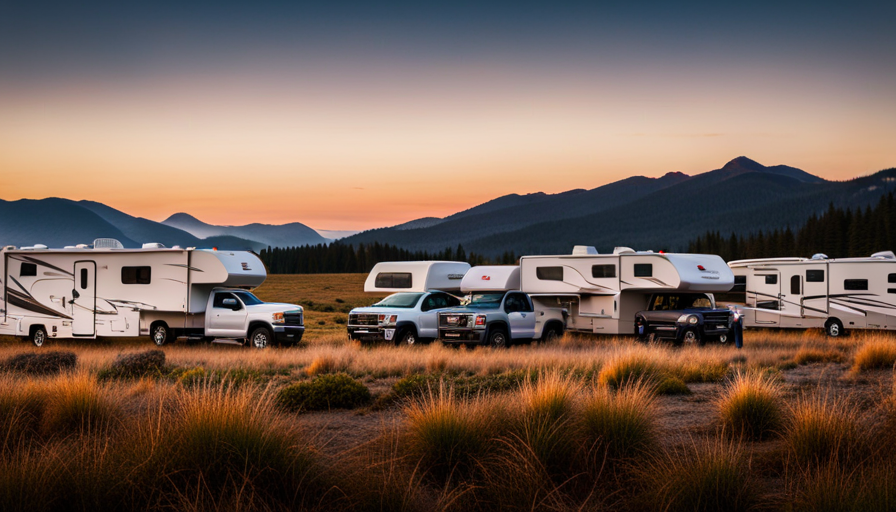As enthusiastic campers, we’re well-acquainted with the delight of venturing into the magnificent wilderness and spending nights beneath the stars inside our reliable camper. Yet, there is one uninvited visitor capable of swiftly spoiling the fun: mice. These small rodents possess the ability to sneak into our campers, creating havoc and possibly transmitting diseases.
But fear not, fellow adventurers, for we have discovered a range of effective methods to keep those pesky mice at bay.
Imagine this: you’re nestled in your cozy camper, enjoying a peaceful evening by the campfire when suddenly, you hear the scurrying of tiny feet. You quickly realize that unwanted visitors have invaded your sanctuary. But worry not, for we have gathered a wealth of practical knowledge to help you keep these furry intruders out of your camper for good.
From sealing entry points to using deterrents like peppermint oil or mothballs, we’ll guide you through the steps to fortify your camper against mouse invasions. We’ll also explore the benefits of setting traps, storing food properly, and cleaning up spills promptly. And if all else fails, we’ll even discuss the option of enlisting the help of natural predators like cats or seeking professional pest control services.
So, fellow adventurers, join us as we embark on a journey to defend our campers from unwanted guests and ensure that our camping experiences remain delightful and critter-free.
Key Takeaways
- Sealing entry points using caulk, steel wool, expanding foam, aluminum foil, and cayenne pepper is important to prevent mice infestation in campers.
- Using deterrents like peppermint oil and mothballs can discourage mice from entering the camper.
- Placing traps, such as snap traps and live traps, near potential entry points and along walls can effectively catch mice.
- Storing food in airtight containers and maintaining a clean and tidy camper helps prevent mice attraction.
Seal any entry points
If you want to keep those pesky mice out of your camper, make sure to seal up any entry points real tight. There are several ways to prevent mice infestation in a camper, and one of the most effective methods is sealing off potential entry points. Mice can squeeze through tiny openings, so it’s essential to carefully inspect your camper for any gaps or holes.
Start by checking the exterior for cracks in the walls, openings around pipes or vents, and gaps under doors. Use a combination of caulk, steel wool, and expanding foam to seal these areas.
Don’t forget to inspect the interior as well, paying close attention to areas where pipes or wires enter the camper. Look for signs of mice infestation, such as droppings, chewed wires, or gnaw marks on furniture.
Once you’ve sealed off all the entry points, you can move on to using deterrents such as peppermint oil or mothballs to further discourage mice from entering your camper.
Use deterrents such as peppermint oil or mothballs
To prevent mice from entering your camper, try using deterrents like peppermint oil or mothballs. These natural remedies can effectively keep mice at bay and protect your camper from potential damage.
Peppermint oil, in particular, has a strong scent that repels mice. It’s easily available and has several benefits. Not only does it act as a deterrent, but it also has a refreshing aroma that can make your camper smell great.
Alternatively, you can use mothballs, which release a pungent odor that mice find unpleasant. Here are five items you can use as deterrents:
-
Peppermint oil: Place cotton balls soaked in peppermint oil around potential entry points.
-
Mothballs: Put mothballs in little sachets and scatter them in areas where mice are likely to enter.
-
Aluminum foil: Wrap aluminum foil around pipes and other openings to prevent mice from squeezing through.
-
Steel wool: Stuff steel wool into any gaps or holes to block mice from entering.
-
Cayenne pepper: Sprinkle cayenne pepper around entry points to deter mice with its strong scent.
Using these deterrents will greatly reduce the chances of mice infesting your camper. However, it’s important to also set traps inside and outside the camper to ensure complete protection. By combining these methods, you can effectively keep mice out and enjoy a rodent-free camping experience.
Set traps inside and outside the camper
Setting traps both inside and outside the camper is a crucial step in ensuring a rodent-free camping experience. To effectively catch mice, it’s important to set traps strategically. Place them near potential entry points, such as doors, windows, and vents. You can also set traps along walls, as mice tend to follow the edges of a room. Use multiple traps to increase your chances of success.
When it comes to choosing the right traps, there are several options available. Snap traps are a popular choice, as they’re simple to use and highly effective. Another option is live traps, which allow you to capture the mice without harming them. Once caught, you can release them away from your camper.
In addition to traps, you can also use homemade repellents to deter mice from entering your camper. Peppermint oil is known to be a natural mouse repellent. Soak cotton balls in peppermint oil and place them near potential entry points. Mothballs can also be effective, as their strong odor repels mice.
By setting traps and using homemade repellents, you can greatly reduce the risk of mice infesting your camper. Keeping food stored in airtight containers is another essential step in preventing rodent problems. This ensures that mice aren’t attracted to your camper in the first place.
Keep food stored in airtight containers
Make sure your food is stored in airtight containers to prevent any unwanted visitors from getting into your delicious snacks. Using vacuum sealed bags is an excellent way to keep your food fresh and protected from mice. These bags create an airtight seal that makes it nearly impossible for mice to detect and access the food inside.
Additionally, implementing a strict cleaning routine is crucial in keeping mice away from your camper. Make sure to clean up any crumbs or spills promptly, as these can attract mice and serve as a constant food source for them. Regularly sweep and mop the floors, wipe down countertops, and clean out any food debris from the stove and refrigerator.
By maintaining a clean and tidy camper, you are significantly reducing the risk of mice infestation. Lastly, remember to seal any holes or cracks in your camper that may serve as entry points for mice. This will further deter them from entering your living space.
With these preventative measures in place, you can enjoy your time in the camper without worrying about unwanted furry visitors.
Clean up crumbs and spills promptly
Cleaning up crumbs and spills promptly is like swiftly wiping away any evidence that could attract tiny, unwanted guests. It’s an essential step in keeping mice out of the camper. To ensure effective cleaning, here are some techniques and prevention methods that we’ve found to be helpful:
- Use a handheld vacuum or broom to sweep up crumbs from the floors and countertops.
- Wipe down surfaces with a disinfectant cleaner to remove any food residue or odors that might entice mice.
- Pay extra attention to hidden areas, such as under appliances and behind furniture, as mice can easily find crumbs in these spots.
By following these cleaning techniques, we can significantly reduce the chances of mice infesting our camper. Additionally, it’s important to note that prevention is key. Along with cleaning, sealing any gaps or cracks in the camper’s exterior and installing door sweeps can further deter mice from entering.
In the next section, we’ll discuss how to remove any potential nesting materials to make the camper less appealing to mice.
Remove any potential nesting materials
To ensure your camper remains a less desirable habitat for unwanted critters, it’s crucial to promptly eliminate any potential nesting materials. Preventing rodent infestations is all about regular maintenance and staying one step ahead of these pesky creatures.
Mice are resourceful and can make a home out of anything they find, so it’s important to remove items that could serve as nesting materials. Start by thoroughly inspecting your camper for any potential nesting spots. Check for loose fabrics, papers, or cardboard that mice could use to build their nests. Remove any clutter or debris that may accumulate over time, as these can become attractive nesting materials.
Additionally, pay close attention to the exterior of your camper. Seal any gaps, cracks, or holes that could serve as entry points for mice. Use materials such as steel wool or caulk to ensure a tight seal.
By eliminating these potential nesting materials and securing your camper, you greatly reduce the likelihood of a rodent infestation.
Regular maintenance and prompt removal of potential nesting materials are vital in preventing rodent infestations in your camper. With these simple steps, you can create an environment that is less appealing to mice.
In the subsequent section, we will discuss the use of ultrasonic devices to repel mice, another effective method to keep your camper critter-free.
Use ultrasonic devices to repel mice
One way to deter mice from entering your camper is by using ultrasonic devices. These devices emit high-frequency sound waves that are unpleasant for pests, including mice.
Ultrasonic devices have both pros and cons. On the positive side, they’re non-toxic and safe for humans and pets. They also don’t require any physical barriers or traps, making them easy to use. Additionally, ultrasonic devices cover a wide area, ensuring that mice are repelled from all corners of your camper.
However, there are a few drawbacks to consider. Firstly, ultrasonic devices may not be effective against all types of mice. Some species may be more resistant to the sound waves. Secondly, the range of the device can vary, so it’s important to choose one that covers the entire space of your camper.
To choose the right ultrasonic device, consider factors such as the size of your camper, the intensity of the sound waves, and any additional features like adjustable frequencies. By using ultrasonic devices, you can create an unpleasant environment for mice, deterring them from entering your camper.
Consider using natural predators like cats to further enhance your pest control efforts.
Consider using natural predators like cats
Consider enlisting the help of furry feline friends to amplify our pest control efforts and ensure a rodent-free environment in our camper. Natural predators like cats have an innate hunting instinct that can effectively keep mice away.
Cats are agile and stealthy, making them excellent hunters. Their mere presence can deter mice from entering our camper in the first place. While ultrasonic devices and other alternative deterrents may work to some extent, having a cat on board adds an extra layer of protection.
Cats not only chase and catch mice, but they also leave their scent behind, which acts as a deterrent for future infestations.
When considering using cats as natural predators, it’s important to choose a cat that is known for its hunting skills and has been properly trained. Additionally, providing a comfortable and safe space for the cat inside the camper is crucial. This includes access to food, water, and a litter box.
Regularly inspecting and cleaning the camper will help maintain a hygienic environment for both the cat and us. By doing so, we can prevent any rodent attraction and potential health hazards.
Incorporating natural predators like cats into our pest control strategy is a practical and efficient way to keep mice out of our camper. With their natural hunting abilities and scent deterrents, cats can help us maintain a rodent-free environment.
So, let’s move on to the next section and learn how regularly inspecting and cleaning the camper plays a crucial role in preventing infestations.
Regularly inspect and clean the camper
Make sure you regularly inspect and clean your camper to maintain a hygienic environment, as studies show that a dirty camper can attract pests and lead to potential health hazards. Here are some key steps to follow when inspecting and cleaning your camper:
-
Check for entry points: Inspect the exterior of your camper for any cracks, gaps, or holes that mice could use to enter. Seal these entry points with caulk or steel wool to prevent mice from getting inside.
-
Remove food sources: Mice are attracted to food, so make sure to store all food in airtight containers. Clean up any spills or crumbs immediately and avoid leaving food out overnight.
-
Clean and declutter: Regularly clean your camper, paying close attention to areas where mice can hide, such as storage compartments, closets, and under furniture. Vacuum and mop the floors, and wipe down surfaces with a disinfectant to eliminate any odors that may attract mice.
Remember, mice can quickly reproduce and infest your camper if not properly managed. If you’ve followed these steps and the infestation persists, it may be time to consult a professional pest control service. They have the knowledge and tools to effectively eliminate the mice and prevent future infestations.
Consult a professional pest control service if the infestation persists
If the infestation continues, it’s time for us to call in the professionals who can effectively handle the pest control in our camper. Professional pest control services have the expertise and tools to address the problem in a thorough and efficient manner. They can identify the entry points and nesting areas of the mice, and implement effective measures to eliminate them.
When choosing a professional pest control service, it’s important to look for one that specializes in dealing with mice infestations. They should have experience in camper pest control and be knowledgeable about the best deterrents for mice. Some common methods used by professionals include sealing off entry points, setting up traps, and using safe and effective baits.
In addition to treating the infestation, a professional pest control service can also provide valuable advice on preventing future infestations. They can recommend the best ways to keep mice out of our camper, such as using rodent-proof containers for food storage, sealing any gaps or cracks, and keeping the camper clean and clutter-free.
By consulting a professional pest control service, we can ensure that our camper is free from mice and prevent any further damage or health risks associated with an infestation.
Frequently Asked Questions
How often should I inspect and clean my camper to prevent mice infestation?
Inspecting and cleaning your camper regularly is crucial to prevent a mice infestation. Let me share a story that illustrates the importance of this maintenance routine.
A fellow camper neglected to inspect his camper for months, and when he finally did, he found a family of mice had made themselves at home. To avoid a similar situation, inspect your camper every few weeks, paying attention to small openings and hidden corners.
Clean it thoroughly, removing any food sources and using mouse repellents to ensure those pesky critters stay away.
Are there any specific types of airtight containers that are recommended for storing food in the camper?
When it comes to storing food in your camper, using airtight containers is highly recommended. These containers create a seal that prevents moisture and pests, like mice, from getting in and contaminating your food.
Look for containers specifically designed for storage, such as plastic or glass containers with locking lids. Alternatively, you can also use resealable bags or vacuum-sealed bags to keep your food fresh and protected. These alternative storage options are effective in keeping mice out and ensuring your food stays safe during your camping trips.
Can using ultrasonic devices to repel mice harm other pets or wildlife in the area?
Using ultrasonic devices to repel mice in campers may not harm other pets or wildlife in the area. These devices emit high-frequency sound waves that are unpleasant to mice, but generally don’t affect other animals. However, it’s important to note that some studies suggest potential health risks associated with prolonged exposure to ultrasonic devices. If you’re concerned about harming other animals or want to explore alternatives, you can consider using natural deterrents like peppermint oil, steel wool, or traps specifically designed for mice.
Are there any natural predators other than cats that can help keep mice away from my camper?
Ah, the age-old battle of keeping mice away from our beloved campers. While cats are often hailed as the ultimate mouse hunters, there are indeed other natural predators that can lend a helping paw.
Take, for instance, the majestic barn owl, known for its insatiable appetite for rodents. Additionally, some organic deterrents like peppermint oil or even predator urine can send those pesky mice running for the hills.
Now, let’s dive into the specifics of keeping those critters at bay in our campers, shall we?
How effective are deterrents like peppermint oil and mothballs in repelling mice?
Peppermint oil and mothballs are often touted as natural deterrents for repelling mice, but their effectiveness is a topic of debate. While some claim that peppermint oil’s strong scent can deter mice, studies have shown mixed results.
Similarly, mothballs emit a strong odor that may repel mice, but their effectiveness can vary. It’s important to note that these methods may not provide a foolproof solution and should be used in conjunction with other preventive measures.
Are There Any Items I Should Pack in My Camper Trailer to Prevent Mice Infestation?
When it comes to preventing mice infestation in your camper trailer, packing essentials for camper trailer is crucial. Ensure to include rodent-proof containers for food storage to deter these unwelcome guests. Additionally, store any vulnerable items, such as bedding or electronics, in sealed plastic bags or containers to further avoid possible damage.
Conclusion
In conclusion, keeping mice out of your camper requires a combination of preventive measures and active deterrents. By sealing all entry points, using natural deterrents like peppermint oil, and setting traps both inside and outside the camper, you can effectively keep mice at bay.
For example, John, a camper enthusiast, followed these steps diligently and managed to keep his camper mouse-free for an entire camping season. By regularly inspecting and cleaning the camper and seeking professional help if needed, you can enjoy a pest-free camping experience.










